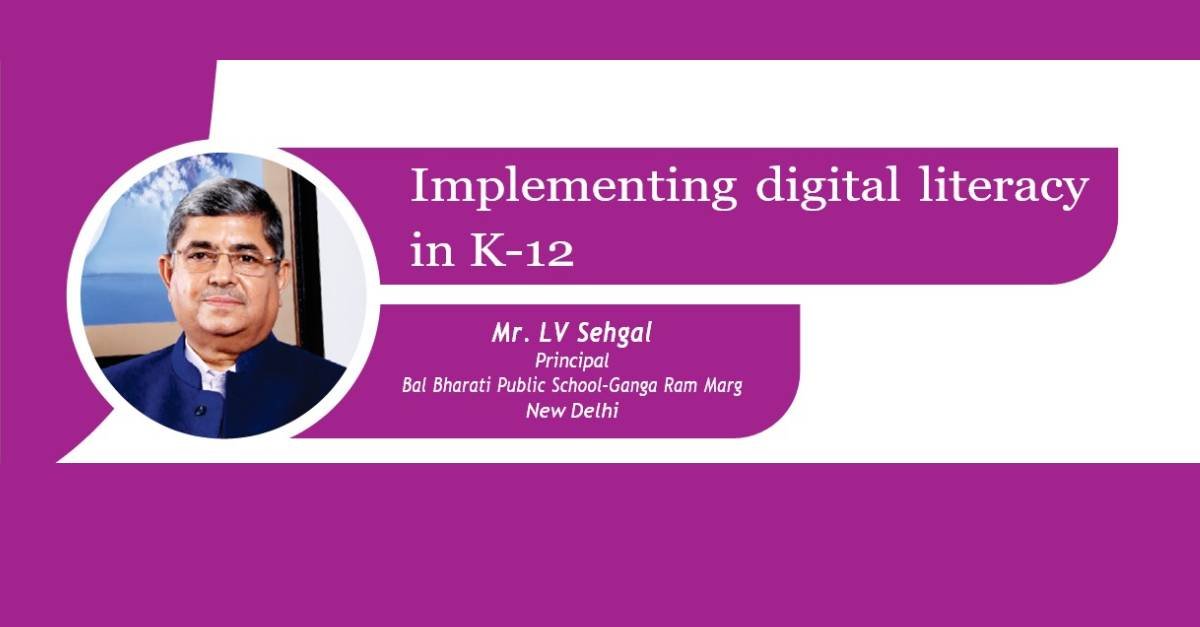Education has always been the key to progress, opening doors to opportunities and driving societal development. Keeping pace with the rapidly evolving digital landscape, it is a fundamental responsibility of all K-12 educational institutions to equip their learners with digital skills such that they are empowered to navigate the complexities as well as excel in the present-day technology-driven world.
Digital literacy goes beyond mere computer knowledge; it encompasses the ability to critically evaluate and effectively use digital tools to enhance learning, communication, and problem-solving. The schools need to have a structured curriculum integrating technology across all subjects. Project- based integrated learning approach is very helpful as it seamlessly incorporates technology into the learning process - helping to strengthen not only theoretical concepts but also providing scope for practical implementation through the use of various physical devices and simulations. Beyond academics, co-curricular activities, such as research/tech-based competitions, clubs, workshops etc. further provide myriad opportunities for learners to gain hands-on experience in acquiring digital skills.
While implementation of digital literacy necessitates that all schools must have the basic infrastructure and facilities, training of the teachers, who are the facilitators of knowledge, must always be prioritised. Competency building programmes focussing on technological innovations for education - is an essential investment, that shall enable teachers to leverage digital resources in facilitating impactful learning. Undeniably, faculty’s technological competence would be directly proportional to the successful implementation of an institution’s digital learning initiatives.
Further, it would be useful for schools to digitize their administrative processes and preferably, incorporate comprehensive online management system, encompassing staff management, student management, fee management, etc. Schools could also consider having interactive websites, and use online platforms besides real time channels to communicate with parents etc. Additionally, engagement with the wider community may also be carried out through varied social media platforms such as Instagram, Facebook, etc. This approach will not only enhance efficiency but also help to foster an overall ‘digi-outlook’ among students, essential for the digitally driven global society of the future.
To ensure that digitization is a positive, productive, and peril-free experience for all stakeholders, schools must take care to address the critical issue of cyber safety. Besides sensitization programmes, through co-curricular activities focussing on issues such as, plagiarism, cyberbullying, etc. safe use of technology must be perpetuated and reinforced regularly. It would be useful to lay the foundations of ethical and responsible use of technology among learners in their impressionable years, to ensure a safe digital environment for all.
Thus, in the ubiquitous presence of technology, schools have an obligation to facilitate digital literacy as an integral part of the curriculum. Besides enhancing student engagement, digital literacy is essential to use technology judiciously, and to adapt, innovate, and collaborate in a digital world. As a bridge to the future, it is undeniable that ;Digital literacy is not an option; it is an essential skill that all students must develop to succeed in the 21st century."


Comments